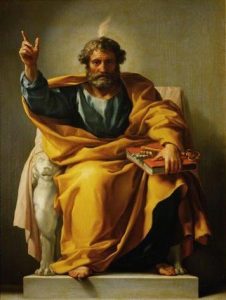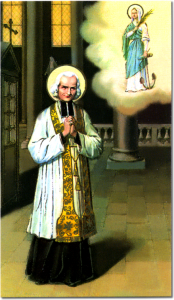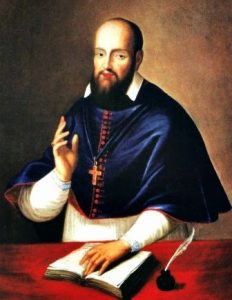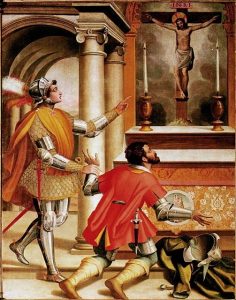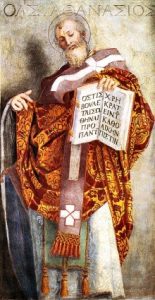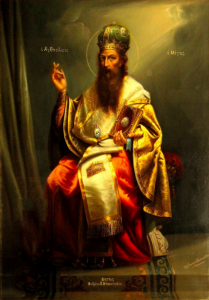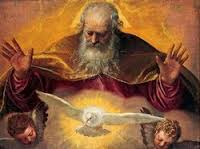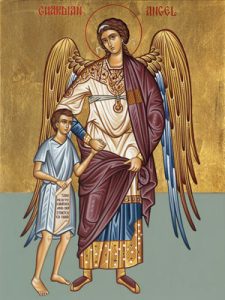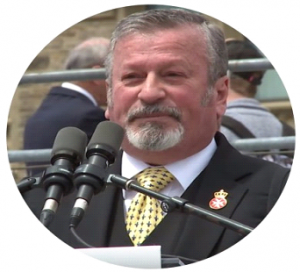
On the Inquisition
Part 2 By Raymond de Souza, KM
Answering Objections
1st objection: The Inquisition was intolerant!
Reply: Before we dissect the Inquisition, we have to, first of all, define the terms we use, to ensure that we share the same meaning. What is ‘tolerance’? In today’s liberal parlance, it means something like accepting other opinions, views and preferences, so that we are not seen to ‘impose’ our views on anyone. To keep our views to ourselves and to share them only if we do not intend to change other people’s views, and, conversely, expect them to reciprocate. To oppose other people’s views might be seen as judgmental, therefore ‘intolerant’.
But true tolerance is something quite different: when you know that something is evil, but you are unable to suppress it, you have no choice but to put up with it, it is tolerance. But you never give up the intention to abolish it. For instance, narco-traffic, prostitution, homosexuality, abortion, terrorism. I disagree with all of these evils, and profoundly so, but I am unable to suppress them from the face of the earth. Although I continue to do my best – however small my best may be – to eradicate them, I have to put up with the reality of their evil existence for the time being, until their total extinction – I tolerate them. I disagree with them, abhor them, fight them, want to see them extinct, but am unable to change the status quo at this point in time. Therefore, I am said to tolerate them.
This is radically different from accepting the opinions, views and preferences of the drug dealers, prostitution ringleaders, homosexual activists, abortionists, or terrorists, so that we are not seen to ‘impose’ our views on anyone. To do this I to condone the evil, not to tolerate it.
* * *
OK, once we have defined the word, let us apply it to the historical context of the Tribunal of the Holy Inquisition.
The objection of ‘intolerance’ in today’s acceptation of the term ignores completely the religious, social, economic and political context of Europe. Apart from a small contingent of Jews, whose religious independence was respected, Europe was Catholic from A to Z. It was a time when ‘the philosophy of the Gospels governed the States’, as Pope Leo XIII said in the encyclical letter Immortale Dei. And he explained it further: “Then it was that the power and divine virtue of Christian wisdom had diffused itself throughout the laws, institutions, and morals of the people, permeating all ranks and relations of civil society. Then, too, the religion instituted by Jesus Christ, established firmly in befitting dignity, flourished everywhere, by the favor of princes and the legitimate protection of magistrates; and Church and State were happily united in concord and friendly interchange of good offices. The State, constituted in this wise, bore fruits important beyond all expectation, whose remembrance is still, and always will be, in renown, witnessed to as they are by countless proofs which can never be blotted out or ever obscured by any craft of any enemies. Christian Europe has subdued barbarous nations, and changed them from a savage to a civilized condition, from superstition to true worship. It victoriously rolled back the tide of Mohammedan conquest; retained the headship of civilization; stood forth in the front rank as the leader and teacher of all, in every branch of national culture; bestowed on the world the gift of true and many-sided liberty; and most wisely founded very numerous institutions for the solace of human suffering. And if we inquire how it was able to bring about so altered a condition of things, the answer is-beyond all question, in large measure, through religion, under whose auspices so many great undertakings were set on foot, through whose aid they were brought to completion” (Immortale Dei, par. 21).
In that historical context, where there was only ‘One Lord, one faith, one baptism’ (Eph. 4:5) in the one Church of God, the pillar and main stay of the Truth” (1 Tim. 3:15), a heresy was not only a different opinion: it was a crime against both Church and State, as it happened in the medieval inquisition regarding the Cathari and Albigentians, the ISIS of the time.
Yes, a crime. Because when Christianity became the religion of the empire, and still more when the peoples of Northern Europe became Christian nations, the close alliance of Church and State made unity of faith essential not only to the ecclesiastical organization, but also to the good order of civil society. The insanity of relativism had not yet been concocted by sick minds.
Heresy, in consequence, was a crime which secular rulers were bound in duty to punish. It was regarded as worse than any other crime, even that of high treason. For society in those times, it was the equivalent of anarchy. Wrong ideas bring about wrong actions, and the peace and order of Christian nations would be endangered.
Therefore, since the Church and State were perfectly able to suppress the evil, the crime, the heresy, they did not have to put up with it – they did not tolerate it. In very simple terms, if the State today, secular as it is, know that there are ways to suppress the network of drug dealers, why should it tolerate its existence? If it were a Christian state, concerned with the Common good, able and willing to abolish pornography, prostitution, abortion, homosexual propaganda, why tolerate it?
Today many States – ours including – do not only tolerate evils that are harmful to the Common Good, but they promote them, finance them, and discriminate against those who disagree with the corruption of society. What a difference from medieval times…!
Second objection: The methods of the Inquisition were unjust, illegal, and cruel!
This objection parrots a historical lie, concocted by anti-Catholic agents, purely and simply. The Inquisition was much milder in its methods than the secular courts. The rights of the accused were much better guaranteed in the Inquisitions than in the ordinary civil trials of the major European countries.
First of all, suspects were not arrested until careful investigation. The Inquisition gave the heretic ample time to recant. Its officers were bound under most severe penalties to move by slow delays, so as to give the accused every opportunity of retraction. The accused was guaranteed a defense lawyer, paid for by the Inquisition if unable to afford it himself. But when the civil authority acted, as it often did, without any reference to the Church, they gave no time for repentance.
Here is the historical reality: The Inquisition marked a great improvement on the treatment meted out to heretics. Before its institution, summary executions by the State or by the enraged populace were the order of the day. Remember, those nations had been recently converted from a barbarian culture, comparatively speaking. Further, the Inquisition punished false accusers.
But weren’t there abuses sometimes? Yes, as in each and every human undertaking. Nothing is perfect in this valley of tears. Whatever its defects, the Inquisition provided that cases of heresy would be judged by competent and impartial judges.
Raymond de Souza KM is available to speak at Catholic events anywhere in the free world in English, Spanish, French and Portuguese. Please email SacredHeartMedia@Outlook.com or visit www.RaymonddeSouza.com or phone 507-450-4196 in the United States
